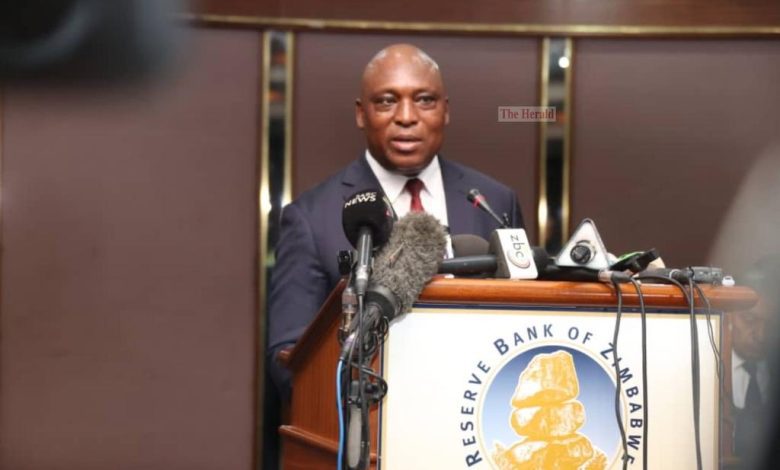Govt pushes for gender parity in ICT
Government is pushing for deliberate policies to promote participation of women and girls in Information and Communication Technologies (ICT) to accelerate their economic contribution and bridge the gender gap within the sector.
Minister of ICT, Postal and Courier Services Dr Jenfan Muswere acknowledged the gender disparity within the sector, creating scope for both public and private sector collaboration in promoting women and girls as innovators, engineers and decision-making positions within the sector.
“I would like to call upon all players in the ICT sector to make deliberate policies and systems within their institutions that make bridging the gender digital divide a priority.
“It is my belief that this commemoration and other efforts made within the sector will result in many more girls and young women becoming innovators, engineers, network engineers and other high ranking positions in this field.
“I further encourage the girls again, to take full advantage of these opportunities to establish their businesses in future,” said Dr Muswere during commemorations for the International Girls in ICT Day held on April 22.
The International Girls in ICT Day was established by the International Telecommunications Union (ITU), a United Nations Agency for Telecommunications, with the aim to create a global environment that empowers and encourages young girls and women to consider careers in the growing field of ICTs.
This year’s celebrations marked the 10th anniversary of the day, which was set aside to bring attention and awareness to the global gender digital divide.
Dr Muswere added that with the growing digitalisation across all sectors of economies, it has become apparent that ICT plays a critical role in ensuring businesses and societies remain connected.
As such, women and girls ought to take up space in this “new normal” and make significant contributions to the changing world.
“By grabbing the vast opportunities in the ICT sector, women and girls would not only empower themselves but also contribute to the country’s economic development,” he said.
Stakeholders in the sector agreed women and girls are capable inventors and innovators who need support at family level, community and national level to ensure their equal participation.
According to history.com, a Hollywood actress, Hedy Lamarr, invented a signal-hopping technology which is used in WiFi, something that should inspire young girls.
Postal and Telecommunications Regulatory Authority of Zimbabwe (POTRAZ) director-general Dr Gift Machengete said women and girls have been left behind in many spheres such as education and digital space which affected their emancipation as well as their contribution to economic development and social transformation.
According to the 2017 national survey on ICT Access and Use by Education Institutions, 59,9 percent of male students had access to a computer against 40,1 percent of female students from ECD A to polytechnic colleges. Apart from awareness raised on day of commemorations, the authority is making other efforts to bridge the gender gap within the sector especially in rural areas.
Said Dr Machengete: “I am pleased to say POTRAZ, as the ICT regulator is running a number of projects aimed at promoting inclusivity and closing the gender digital divide. These include the Innovation Drive, were female participation in ICT application development is encouraged and the Community Information Centre (CIC) project where ICT access and use by women and girls in marginalised areas is promoted.”
Globally, according to Equals Global Partnerships, a global initiative of the ITU aimed at developing initiatives to bridge the gender digital divide, 200 million fewer women than men own a mobile phone and 250 million fewer women than men use the Internet.
The digital gender divide is more pronounced when it comes to women as creators of technology. It estimated that 88 percent of all ICT patents are invented by men and only 2 percent invented by females, while the remaining 10 percent are developed by teams of both sexes.
Further studies indicate that in the USA and UK, only 5 percent of tech start-ups are owned by women and only 5 percent of women are in a technology leadership role.
Econet’s Roseweater Usayi also called on increased participation of women in ICT inventions, for instance the world of gaming which is a multi-billion revenue sector.
“I will cite for example, gaming, there are not many that girls can play because they are created by men. Girls should take up this vast opportunity as it is a significant revenue contributor.
“Leaving women and girls behind means they are excluded from contributing towards GDP,” she said.
Director (Telecommunications Development Bureau ITU) Doreen Bogdan Martin also emphasised the need to give girls equal opportunities at an early age to allow them to tap into the endless opportunities in the sector. She added women have capacity to develop ICT solutions that can address some of the obtaining challenges being experienced in the world if given equal opportunities.
Chief director ICT Services in the Ministry of ICT, Dr Beaullah Chirume, highlighted the world was fast becoming digital, accelerated by Covid-19 which called for girls and women to keep abreast with the changes happening worldwide.
She said: “Whatever profession you choose, be it a teacher or nurse or artist, these days you need to be digitally enabled because that is the path we are taking world over, so women should be at home with digitalisation at all levels.”-sunday,ail











